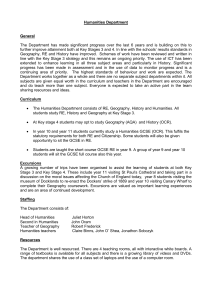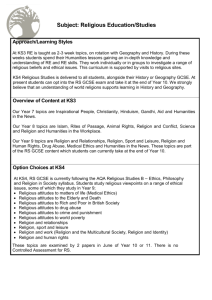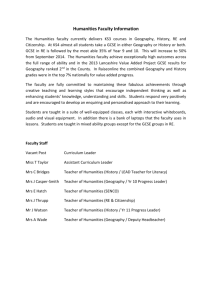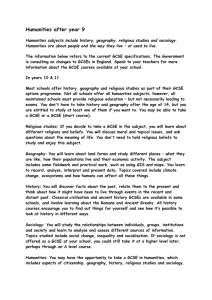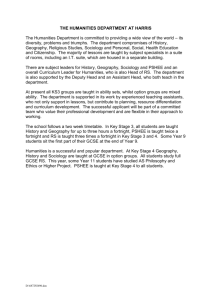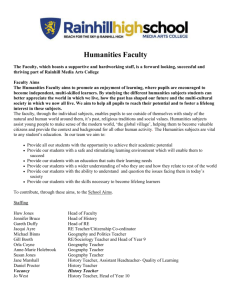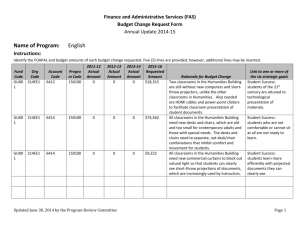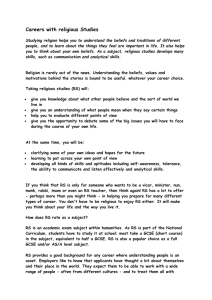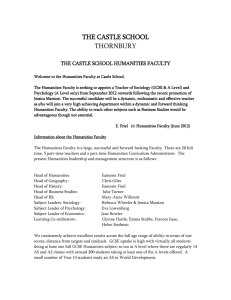science faculty description
advertisement
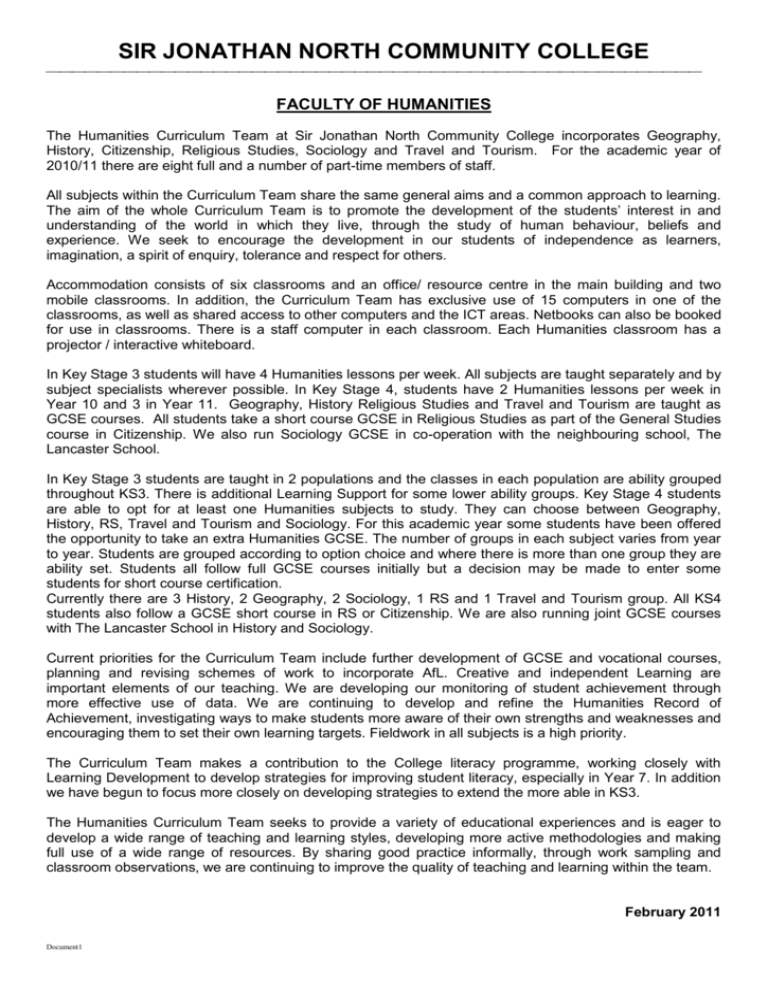
SIR JONATHAN NORTH COMMUNITY COLLEGE FACULTY OF HUMANITIES The Humanities Curriculum Team at Sir Jonathan North Community College incorporates Geography, History, Citizenship, Religious Studies, Sociology and Travel and Tourism. For the academic year of 2010/11 there are eight full and a number of part-time members of staff. All subjects within the Curriculum Team share the same general aims and a common approach to learning. The aim of the whole Curriculum Team is to promote the development of the students’ interest in and understanding of the world in which they live, through the study of human behaviour, beliefs and experience. We seek to encourage the development in our students of independence as learners, imagination, a spirit of enquiry, tolerance and respect for others. Accommodation consists of six classrooms and an office/ resource centre in the main building and two mobile classrooms. In addition, the Curriculum Team has exclusive use of 15 computers in one of the classrooms, as well as shared access to other computers and the ICT areas. Netbooks can also be booked for use in classrooms. There is a staff computer in each classroom. Each Humanities classroom has a projector / interactive whiteboard. In Key Stage 3 students will have 4 Humanities lessons per week. All subjects are taught separately and by subject specialists wherever possible. In Key Stage 4, students have 2 Humanities lessons per week in Year 10 and 3 in Year 11. Geography, History Religious Studies and Travel and Tourism are taught as GCSE courses. All students take a short course GCSE in Religious Studies as part of the General Studies course in Citizenship. We also run Sociology GCSE in co-operation with the neighbouring school, The Lancaster School. In Key Stage 3 students are taught in 2 populations and the classes in each population are ability grouped throughout KS3. There is additional Learning Support for some lower ability groups. Key Stage 4 students are able to opt for at least one Humanities subjects to study. They can choose between Geography, History, RS, Travel and Tourism and Sociology. For this academic year some students have been offered the opportunity to take an extra Humanities GCSE. The number of groups in each subject varies from year to year. Students are grouped according to option choice and where there is more than one group they are ability set. Students all follow full GCSE courses initially but a decision may be made to enter some students for short course certification. Currently there are 3 History, 2 Geography, 2 Sociology, 1 RS and 1 Travel and Tourism group. All KS4 students also follow a GCSE short course in RS or Citizenship. We are also running joint GCSE courses with The Lancaster School in History and Sociology. Current priorities for the Curriculum Team include further development of GCSE and vocational courses, planning and revising schemes of work to incorporate AfL. Creative and independent Learning are important elements of our teaching. We are developing our monitoring of student achievement through more effective use of data. We are continuing to develop and refine the Humanities Record of Achievement, investigating ways to make students more aware of their own strengths and weaknesses and encouraging them to set their own learning targets. Fieldwork in all subjects is a high priority. The Curriculum Team makes a contribution to the College literacy programme, working closely with Learning Development to develop strategies for improving student literacy, especially in Year 7. In addition we have begun to focus more closely on developing strategies to extend the more able in KS3. The Humanities Curriculum Team seeks to provide a variety of educational experiences and is eager to develop a wide range of teaching and learning styles, developing more active methodologies and making full use of a wide range of resources. By sharing good practice informally, through work sampling and classroom observations, we are continuing to improve the quality of teaching and learning within the team. February 2011 Document1
